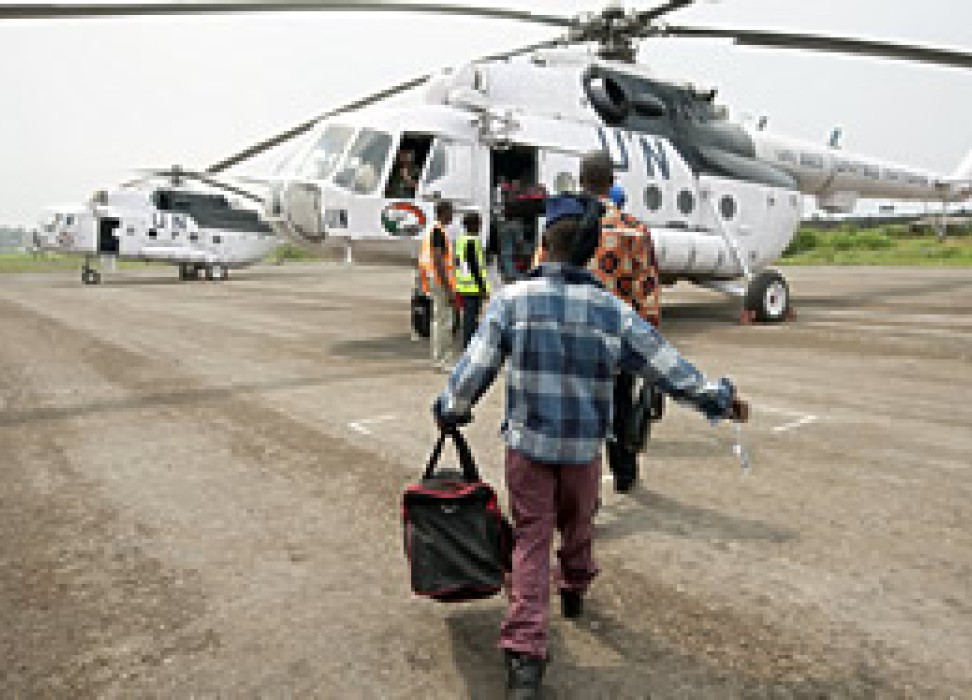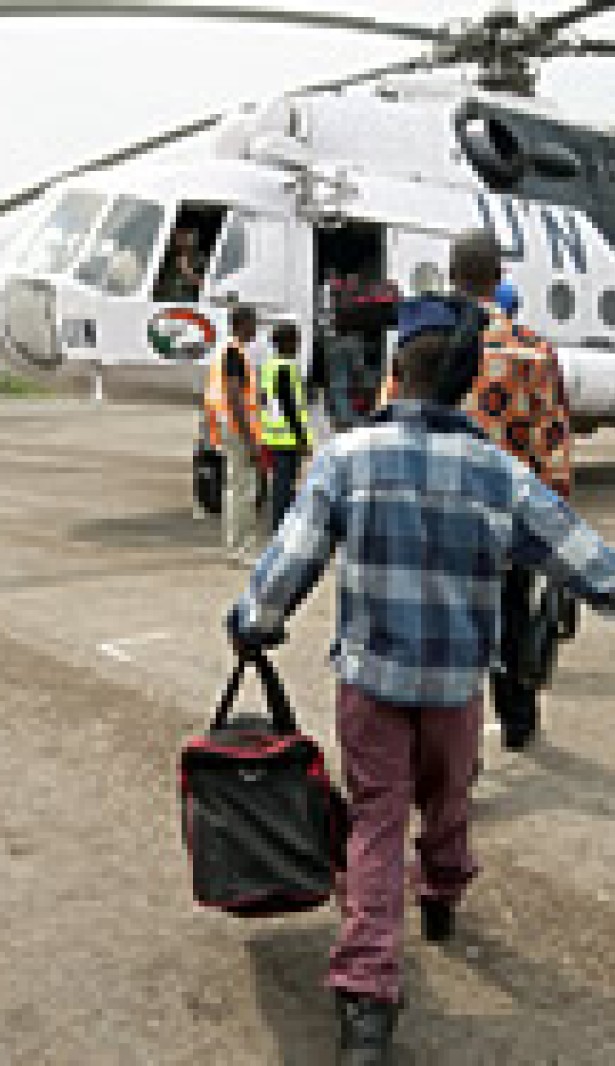A new roadmap for human rights mechanisms in Africa
09 February 2012

“Just as human rights forge vital links between peace, good governance and development, bringing the full weight of the UN human rights programme has facilitated the successful transition between peacekeeping operations and humanitarian emergency assistance to long-term peace building and sustainable development,” said Zachary Muburi-Muita, Special Representative of the UN Secretary General to the African Union. “Strengthening respect for human rights through development contributes to a climate of confidence that helps society regain its equilibrium.”
Muburi-Muita was speaking earlier this year at an expert meeting in Addis Ababa, Ethiopia, that sought ways of improving cooperation between the UN and the African Union for the promotion and protection of human rights in Africa. He stressed that security, development and human rights are interdependent and that creating synergy between mechanisms is crucial in bettering people’s lives.
Over the last decades, many African Governments have shown the will to promote and protect human rights by adopting a number of international agreements. Yet, some countries have yet to translate provisions enshrined in human rights conventions into national law.
Experts found that ensuring human rights instruments are ratified and implemented required a collective response to Africa’s challenges and closer cooperation between international and regional human rights mechanisms.
The first joint roadmap for cooperation concluded by African Union and UN human rights special procedures outlines the modalities of such collaboration. Special Procedures is the general name given to mechanisms established to address either specific country situations or thematic issues in all parts of the world. They are either an individual, a special rapporteur, a representative or independent expert, or a working group.
“The time has come for us to seek new or alternative ways of securing human rights that would help prevent the kind of conflicts that we witness,” said Julia Dolly Joiner, Commissioner for Political Affairs at the African Union Commission. “I am convinced that better coordination and cooperation between the two human rights mechanisms will, in many significant ways, ease the burdens on some Member States which struggle to meet the demands and concerns of both mechanisms.”
The roadmap establishes a joint working group of UN Human Rights Council and African Commission on Human and People’s Rights special procedures. The working group will propose joint actions such as public statements on particular human rights concerns; awareness-raising events; and joint visits to assess the human rights situation in African countries. The group of experts will also enhance their information-sharing through existing tools.
“Peer-to-peer learning is an invaluable tool in the framework of enhanced collaboration and building synergies that the two systems are seeking to establish,” said Reine Alapini Gansou, former Chairperson of the African Commission on Human and Peoples’ Rights.
9 February 2012

VIEW THIS PAGE IN:
